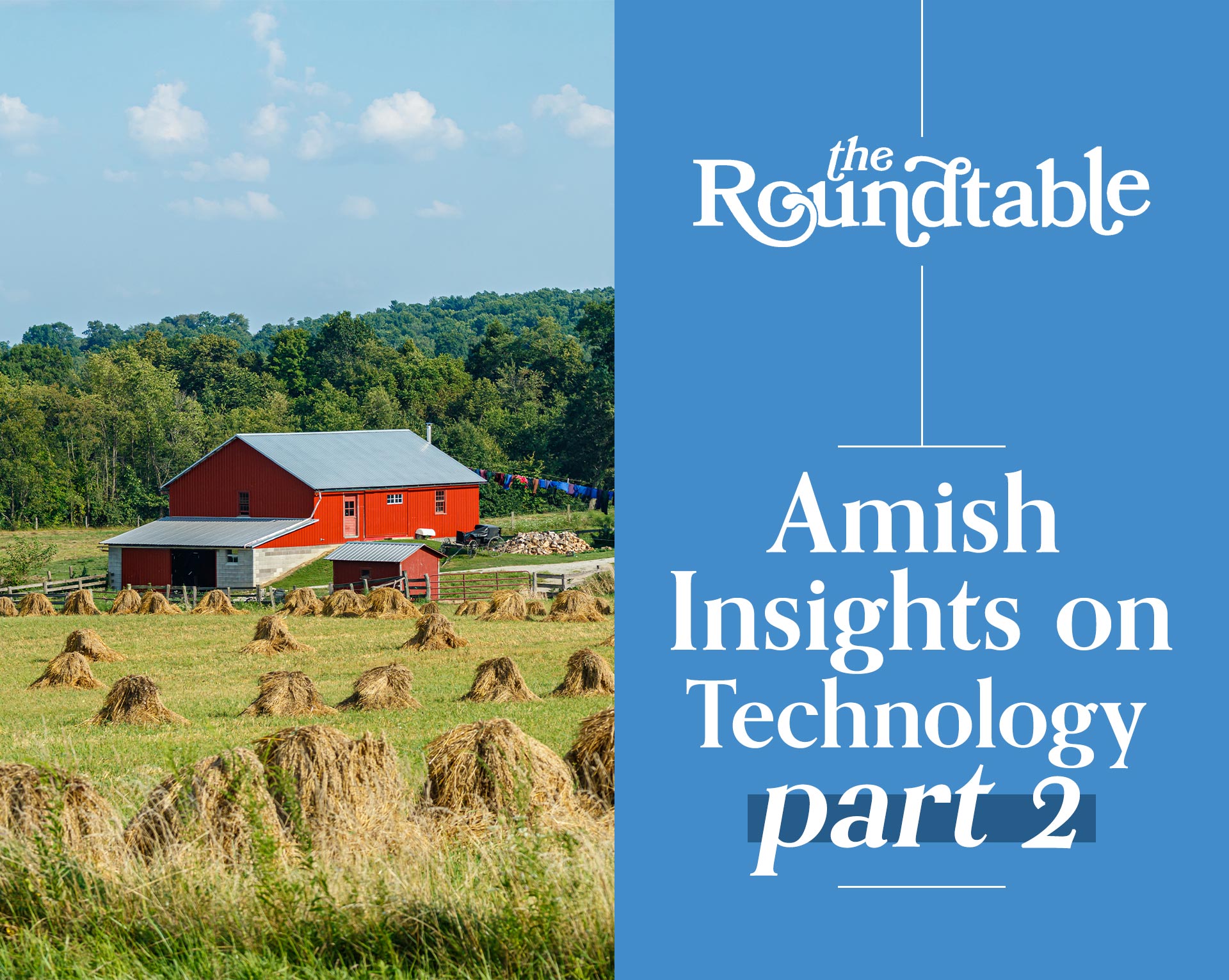by Jerry D, Plain Values
This Month’s Question:
The balance between the blessings and pit-falls of modern-day technology can be hard to find. How do we balance using technology with staying connected to our community?
Answered by: Jerry D Miller, a minister in his local Amish church
“Unless the Lord builds the house, those who labor build it in vain.”1 Jesus taught us in the Sermon on the Mount, “seek ye first the kingdom of God, and all these things shall be added unto you.”2

So you ask, how do we balance using technology and community? Maybe for starters, we have to recognize that not all technology is wrong. I, for one, am thankful for the technology that brought us toilet paper, as I have no desire to go back to the Sears and Roebuck days. As a person from the Plain community, we have the tendency to view something new as dangerous, and rightly so. Still, the Bible does not necessarily teach that new things are wrong or sinful in themselves, but it says the lust of the flesh—the lust of the eye and the pride of life3—is what’s sinful. If I continually want my own thing in my own way, I know that leads to death. The Biblical view naturally leads us to a life of counterculture and nonconformity to the old, sick society. We are called to build a culture that heals instead of destroys. This is an exciting process of liberation.
We must realize that righteousness is not isolated (me by myself); that is self-righteousness. As we become righteous, our relationships take on real flesh and blood—our visions, goals, and desires we share with real human beings, not some techno-visual-electrified being without a soul. We must remember the great Achilles’ heel of the technosphere in which we live is that it doesn’t make us as happy as it claims. Therefore, we must actively seek ways to limit technology and do more ourselves. The old proverb, “if you want a friend, be a friend,” still holds true. If we truly desire the comradery of a neighbor, we must be a neighbor; this means eating together, working together, and crying together. These actions build relationships that stand the test of time.
As I consider the moral decay of society and how technology has contributed to it, it behooves me to think about how I grew up and how vastly different it is now. Growing up, I knew instinctively that every man was our neighbor and stood for things rightly. Our neighbors did everything they possibly could to protect us boys from ourselves; we knew that without being told, and it protected us from pornography and all its evil influences.
Now we have fathers willing to give little Johnny a device that connects him directly to the pits of Hell with the admonition, “Please, Johnny, don’t look at it.” Who are we kidding?!
Yes, I realize we need a certain amount of tech to survive in the business world. But I also see a good friend of mine who operates a furniture business without a cell phone or email, and he still walks 500 yards to the neighbor to use his telephone. His business is thriving, and he stays busy without this technology. He told me recently that “If I had a phone in my office, I would become a total slave to it.” The old tenets of honesty, workmanship, and integrity still hold true. This is especially true because more and more people long to do business with a person, not a machine. As a general rule, the more machines, the less community.

We need to reaffirm the importance of the Sabbath day: times of rest and fasting from production and consumption. Time spent in solitude, resting, and waiting without the interruption of technology. We must view community as essential; in other words, the needs of my neighbor exceed my own. We must approach technology with open skepticism, or we become slaves to our choices. Therefore stand fast in the liberty wherein ye are called.4
FOOTNOTES:
1) Psalm 127:1a
2) Matthew 6:33
3) 1 John 2:15–16
4) Galatians 5:1
This article was published in the February 2023 issue of Plain Values Magazine. If you want the latest Q&A’s every month (including two panelist answers), subscribe to the magazine at plainvalues.com. As a special thanks, get 10% off your subscription with the code “GAB23”!
Email us your own questions for The Roundtable at [email protected].

Jerry and Gloria Miller, along with their six children, operate Gloria’s home farm, a 173-acre organic dairy. They milk between 60 and 70 cows with a few small cottage industries supplementing the farm income. Jerry is a deacon in his local Amish church.





